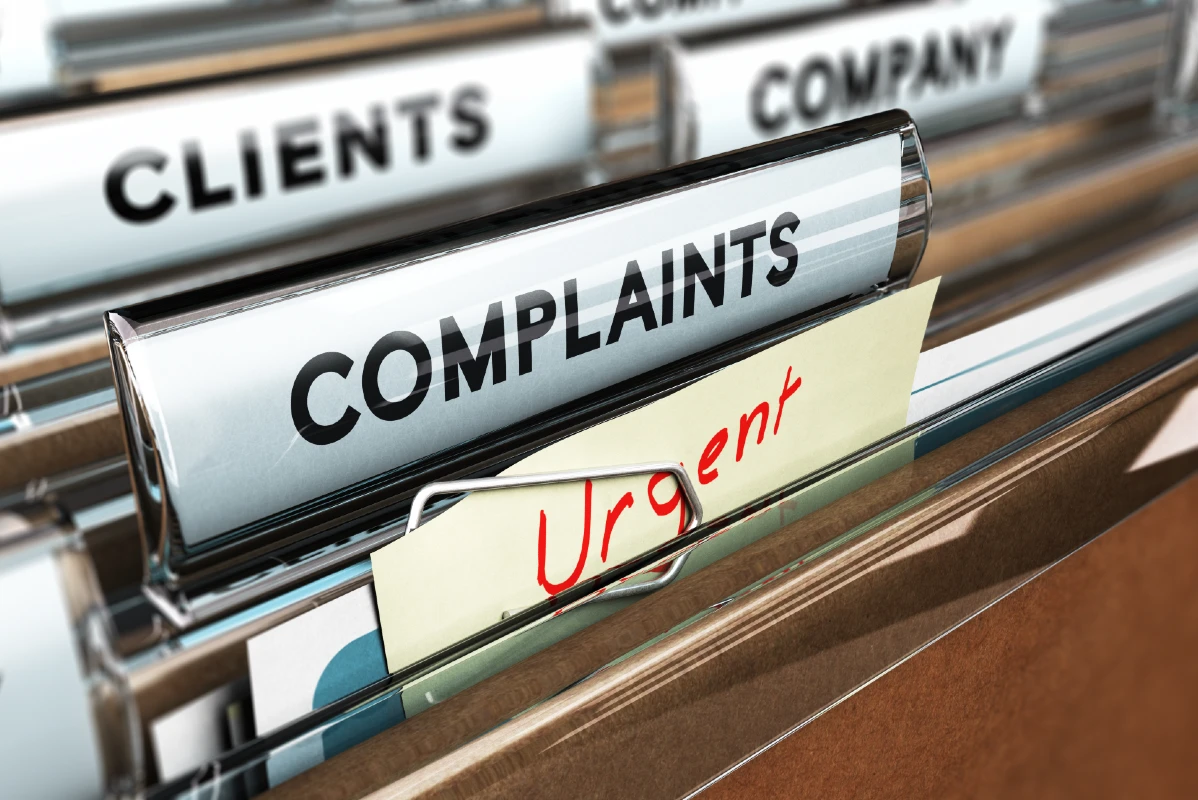We use cookies to help provide you with the best possible online experience.
By using this site, you agree that we may store and access cookies on your device. Cookie policy.
Cookie settings.
Functional Cookies
Functional Cookies are enabled by default at all times so that we can save your preferences for cookie settings and ensure site works and delivers best experience.
3rd Party Cookies
This website uses Google Analytics to collect anonymous information such as the number of visitors to the site, and the most popular pages.
Keeping this cookie enabled helps us to improve our website.

Complaints Procedure
We welcome your views and would encourage you to provide us with feedback to improve our services for you.
How to make a complaint?
We are sorry if you feel the need to complain. We always welcome complaints and suggestions. They can help to improve our services and your experience. You will never be discriminated against simply because you make a complaint. We have learnt a lot from your feedback and will continue to develop our services with your thoughts in mind.
Most problems can be sorted out quickly and easily, often at the time they arise with the person concerned and this may be the approach you try first.
Where you are not able to resolve your complaint in this way and wish to make a formal complaint you should do so, preferably in writing as soon as possible after the event and ideally within a few days, as this helps us to establish what happened more easily. In any event, this should be:
- Within 12 months of the incident
- or within 12 months of you becoming aware of the matter giving as much detail as you can.
If you are a registered patient you can complain about your own care. You are unable to complain about someone else’s treatment without their written authority. See Complaining on Behalf of Someone Else
We are able to provide you with a separate complaints form to register your complaint and this includes a third-party authority form to enable a complaint to be made by someone else.
Please ask at reception for this.
Send your written complaint to:
Mrs Sharon Meers – Practice Manager
Burlington Primary Care,
12-14 Burlington Road,
Ipswich,
Suffolk,
IP1 2EU
What we do next
We look to settle complaints as soon as possible.
We will acknowledge receipt within 3 working day and aim to look into the matter in accordance with Burlington Primary cares policies and procedures. You may then receive a formal reply in writing, or you may be invited to meet with the person(s) concerned to attempt to resolve the issue. If the matter is likely to take longer than this we will let you know, and keep you informed as the investigation progresses.
When looking into a complaint we attempt to see what happened and why, to see if there is something we can learn from this, and make it possible for you to discuss the issue with those involved if you would like to do so.
When the investigations are complete your complaint will be determined and a final response sent to you.
Where your complaint involves more than one organisation (e.g. social services) we will liaise with that organisation so that you receive one coordinated reply. We may need your consent to do this. Where your complaint has been sent initially to an incorrect organisation, we may seek your consent to forward this to the correct person to deal with.
The final response letter will include details of the result of your complaint and also your right to escalate the matter further if you remain dissatisfied with the response.
Complaining on Behalf of Someone Else
We keep to the strict rules of medical and personal confidentiality. If you wish to make a complaint and are not the patient involved, we will require the written consent of the patient to confirm that they are unhappy with their treatment and that we can deal with someone else about it, naming the individuals acting on their behalf.
Where the patient is incapable of providing consent due to illness or accident it may still be possible to deal with the complaint. Please provide the precise details of the circumstances which prevent this in your covering letter.
Please Note: That we are unable to discuss any issue relating to someone else without their express permission, which must be in writing unless the circumstances above apply.
We may still need to correspond direct with the patient, or may be able to deal direct with the third-party and this depends on the wording of the authority provided.
If you are dissatisfied with the outcome
If you wish to appeal, you should seek further investigation by writing to the Practice Manager again with the specific concerns or issues that you feel have not been addressed; detailing whether a face-to-face meeting or written response would be preferred.
Alternatively, an appeal may be lodged with NHS England whose details are as follows:
NHS England
PO Box 16738
Redditch
B97 9PT
Tel: 0300 311 2233
Make a complaint to NHS England
If you are still dissatisfied with the outcome, you have the right to approach the Health Service Ombudsman whose contact details are as follows:
The Parliamentary and Health Service Ombudsman
Millbank Tower
Millbank
London
SW1P 4QP
Tel: 0345 015 4033
Make a complaint to the Parliamentary and Health Service Ombudsman
PALS (Patient Advice and Liaison Service)
The NHS employs over a million staff in thousands of locations. It is a large and complex organisation providing a broad range of services. It is not surprising that sometimes you or a loved one may feel bewildered or concerned when using the NHS, and this can be at times when you are feeling at your most vulnerable and anxious.
So, what should you do if you want on the spot help when using the health service? The NHS expects all members of staff to listen and respond to you to the best of their ability, but sometimes, you may wish to talk to someone employed especially to help you. The Patient Advice and Liaison Service, known as PALS, has been introduced to ensure that the NHS listens to patients, their relatives, carers and friends, and answers their questions and resolves their concerns as quickly as possible.
PALS also helps the NHS to improve services by listening to what matters to patients and their loved ones and making changes, when appropriate.
What does PALS do?
In particular, PALS will:
- Provide you with information about the NHS and help you with any other health-related enquiry
- Help resolve concerns or problems when you are using the NHS
- Provide information about the NHS complaints procedure and how to get independent help if you decide you may want to make a complaint
- Provide you with information and help introduce you to agencies and support groups outside the NHS
- Inform you about how you can get more involved in your own health care and the NHS locally
- Improve the NHS by listening to your concerns, suggestions and experiences and ensuring that people who design and manage services are aware of the issues you raise
- Provide an early warning system for NHS Trusts and monitoring bodies by identifying problems or gaps in services and reporting them.
